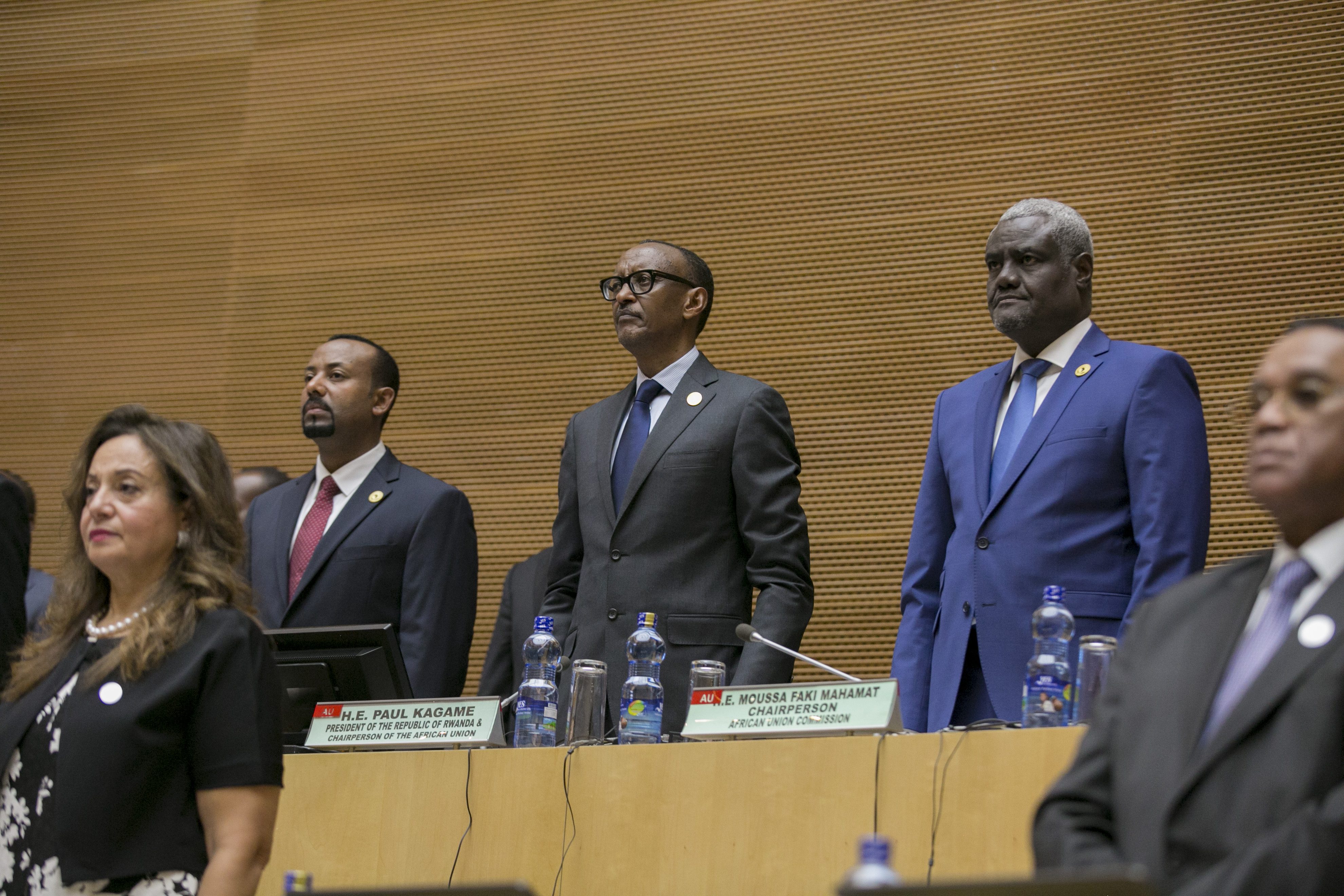After President Goodluck Ebele Jonathan of Nigeria lost his re-election bid in 2015, the world held her breath. An incumbent had never lost an election before then. Chaos was prophesied; doom was promised. But President Goodluck upon learning of his defeat called the winner, Major-General Muhammadu Buhari, to congratulate him. The face of the Major-General receiving the president’s call was splashed across major newspapers the next morning. Everyone, home and abroad, began tagging President Goodluck as the hero of democracy.
It is well within the rights of an African leader to hold on to power; they are born for it, and they must bask in it. Before 1990, Africa was ruled by big men; revolutionaries who became military dictators. Power started with them, revolved around them, and ended with them. They became one with power, and a conflict of identity ensued. They couldn’t imagine themselves outside of power, so they clung to it; till death did them apart.
However, a wave of political liberation swept across Africa in the early 1990s. This wave birthed the rule of law and enabled the flourishing of formal political institutions. A shift from powerful individuals to powerful systems began. There became a spread of multiparty elections in Africa, which allowed for robust forms of democracies to be practiced.
[perfectpullquote align=”right” bordertop=”false” cite=”” link=”” color=”” class=”” size=””]Effective governance is built on mandates gotten at the poll. But with attempts to extend terms becoming regular occurrences across the continent, popping up every one or two years in countries including Angola, Burkina Faso, Burundi, Cameroon, Chad, Djibouti, Equatorial Guinea, Guinea, Niger, Nigeria, the Republic of Congo, Rwanda, Senegal, Sudan, and Uganda, governance on the continent is becoming a charade.[/perfectpullquote]
Political legitimacy through the ballot box became a norm under this new form of democracy. Coups, violence, and other extra-constitutional means of coming to, staying in, and leaving power were replaced. Term limits became a dividend of this democracy, allowing the electorate a window of choice at different time intervals to change their leader.
However, in 2006, President Obasanjo of Nigeria was at the last lap of his two-year term. Rather than begin preparations to leave office, he began a campaign to reengineer the constitution to allow him to run for a third term. He failed. The National Assembly squashed his third-term bid. In 2015, Pierre Nkurunziza was sworn in as president of Burundi for a third term. He was successful in his attempt to reengineer the constitution. Even though 500 people had been killed because of the crisis that engulfed his nation due to his inordinate ambition, he was unbothered.
There cannot be victory without sacrifice. That same year, Paul Kagame, the president of Rwanda sponsored a constitutional referendum that consolidated his hold on his nation until at least 2034. 2016 was no better, as Denis Sassou-Nguesso, the President of the Republic of Congo, was re-elected after overseeing a constitutional amendment that abolished term limits and age restriction for him. Almost every African nation has had or has a leader that has overstayed their welcome.
From 1990 to 2019, 42 African presidents from 31 countries completed their legally allowed mandates. Only in 53% of the occasions did the leader step down. In the remaining cases, they tried to bypass term limits. From Paul Biya, Idriss Deby, Omar Bongo, Yoweri Museveni to Pierre Nkurunziza, Alassane Ouattara, Alpha Condé, and Paul Kagame, African leaders are exploiting constitutional loopholes, and there has been an increase in third-term bids—incumbents kickstarting processes to circumvent and reengineer their national constitutions.
It is noteworthy that every single incumbent, aside from former president Abdoulaye Wade of Senegal, who successfully circumvented the term-limit won at subsequent polls. Arguments can be made about the fairness of such polls, but they won and long shall their stay in power be. What this means in simple terms is that electoral victory is guaranteed after an incumbent succeeds in rewriting portions of the constitution to favor his bid.
Term limits are essential to upholding democracy. It is what ensures that leaders do not cross the line into dictatorship. It is the very soul of political existence. Politics runs on the ability to change, or retain a leader; and when that is taken away, what is birthed is a dictatorship. With time people get tired of leaders and need to change them. When this is not guaranteed at the polls, they take to the streets and political uprisings are birthed (Zimbabwe comes to mind here). This puts a strain on what governance can achieve. A gradual decline into chaos occurs as political uprisings become the order of the day. Term limits stabilize the political playing field, and in short, are an alternative to political violence.
Abraham Lincoln believed that democracy is the government of the people, by the people, and for the people. In democracies, governance is enshrined in the will of the people; the people choose who they want per time. This power of choice is exercised at the polls.
Effective governance is built on mandates gotten at the poll. But with attempts to extend terms becoming regular occurrences across the continent, popping up every one or two years in countries including Angola, Burkina Faso, Burundi, Cameroon, Chad, Djibouti, Equatorial Guinea, Guinea, Niger, Nigeria, the Republic of Congo, Rwanda, Senegal, Sudan, and Uganda, governance on the continent is becoming a charade. And the era of big men, weak institutions might just be constitutionalizing themselves rather than fading away.
Temitayo Jaiyeola explores and simplifies social complexities around Africa through his writings and storytelling. He tweets @theTemi_.
Photo credit: Paul Kagame on Flickr.

